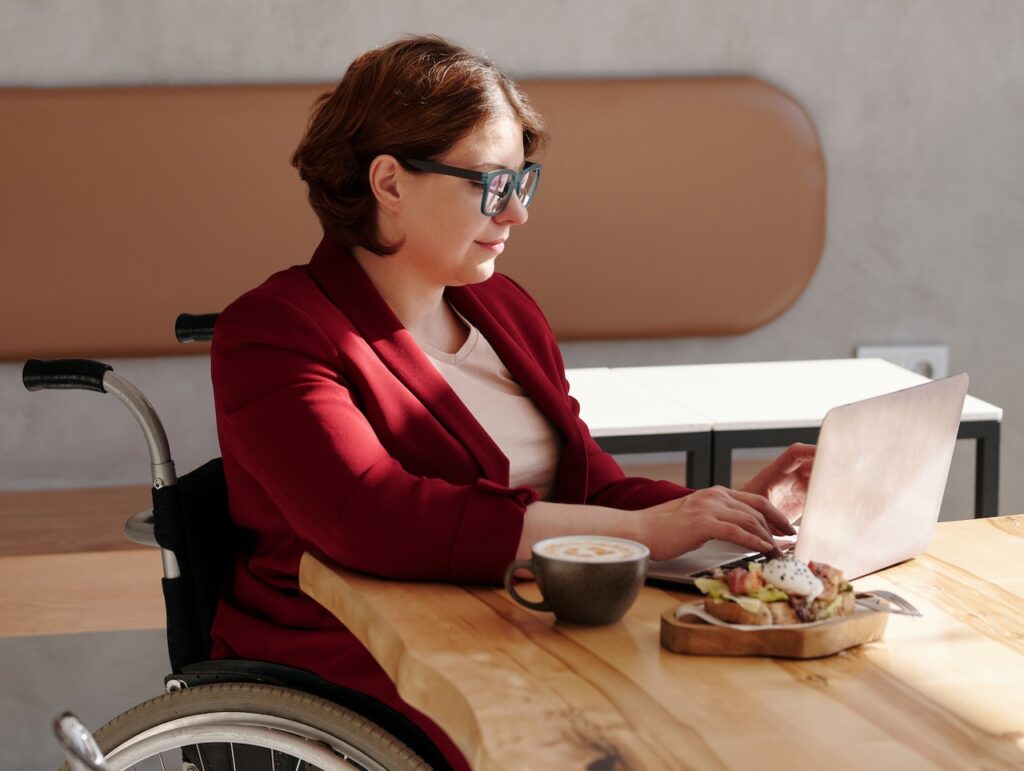It is estimated that 9% of Americans will experience an eating disorder in their lifetime[1] . Eating disorders are characterized by abnormal eating behaviors that can cause physical and emotional distress. Eating disorders have a negative impact on a person’s life, leading to a decline in overall health and well-being, and potentially death. Therefore, treatment for eating disorders should not be ignored.
In the age of telehealth, virtual meal support groups are a growing resource and means of support for people with eating disorders. These groups provide a safe and supportive space for individuals to share their struggles, gain insight into their condition, and manage distress that may be associated with eating.

A qualified facilitator, such as a licensed therapist or registered dietitian can host such groups via a HIPAA compliant video conferencing platform during mealtimes. Folx recovering from eating disorders register and attend meal support groups, which typically last 30-90 minutes depending on whether it’s a snack or meal. During the meal, the facilitator aids in encouraging participants to reach their eating-related goals and peers assist in supporting one another.
One of the primary benefits of virtual meal support groups is that they provide a sense of community. Eating disorders can be incredibly isolating, and individuals often feel ashamed or embarrassed about their struggles. Virtual meal support groups offer a space where people can connect with others who understand their experiences and offer validation, encouragement, and support.
Another benefit of virtual meal support groups is that they provide structure and accountability. Many people with eating disorders struggle to establish and maintain healthy eating habits. In a virtual meal support group, participants can work together to establish consistent mealtimes, plan meals, and hold each other accountable for sticking to their plans. This can be especially helpful for individuals who struggle with binge eating, purging, or other disordered eating behaviors.
Virtual meal support groups also provide a source of education and resources. Group facilitators, such as therapists or registered dietitians, can offer evidence-based information about eating disorders and recovery. Group members may also share their own experiences and offer recommendations for helpful resources, such as books or podcasts.
Insightful Counseling is excited to announce a new virtual meal support group that will be offered starting next month, May 2023. This group is open to adults, of all gender identities who are struggling with disordered eating behaviors and seeking support in their recovery. The group will meet weekly via video conference and will offer a safe and supportive space for participants to connect, share their experiences, and work towards establishing healthy eating habits.

If you or someone you know is struggling with an eating disorder and could benefit from the support of a virtual meal support group, I encourage you to reach out to learn more about this new group. Together, we can work towards building a community of support and healing.
- [1] Deloitte Access Economics. The Social and Economic Cost of Eating Disorders in the United States of America: A Report for the Strategic Training Initiative for the Prevention of Eating Disorders and the Academy for Eating Disorders. June 2020. Available at: https://www.hsph.harvard.edu/striped/report-economic-costs-of-eating-disorders/.



